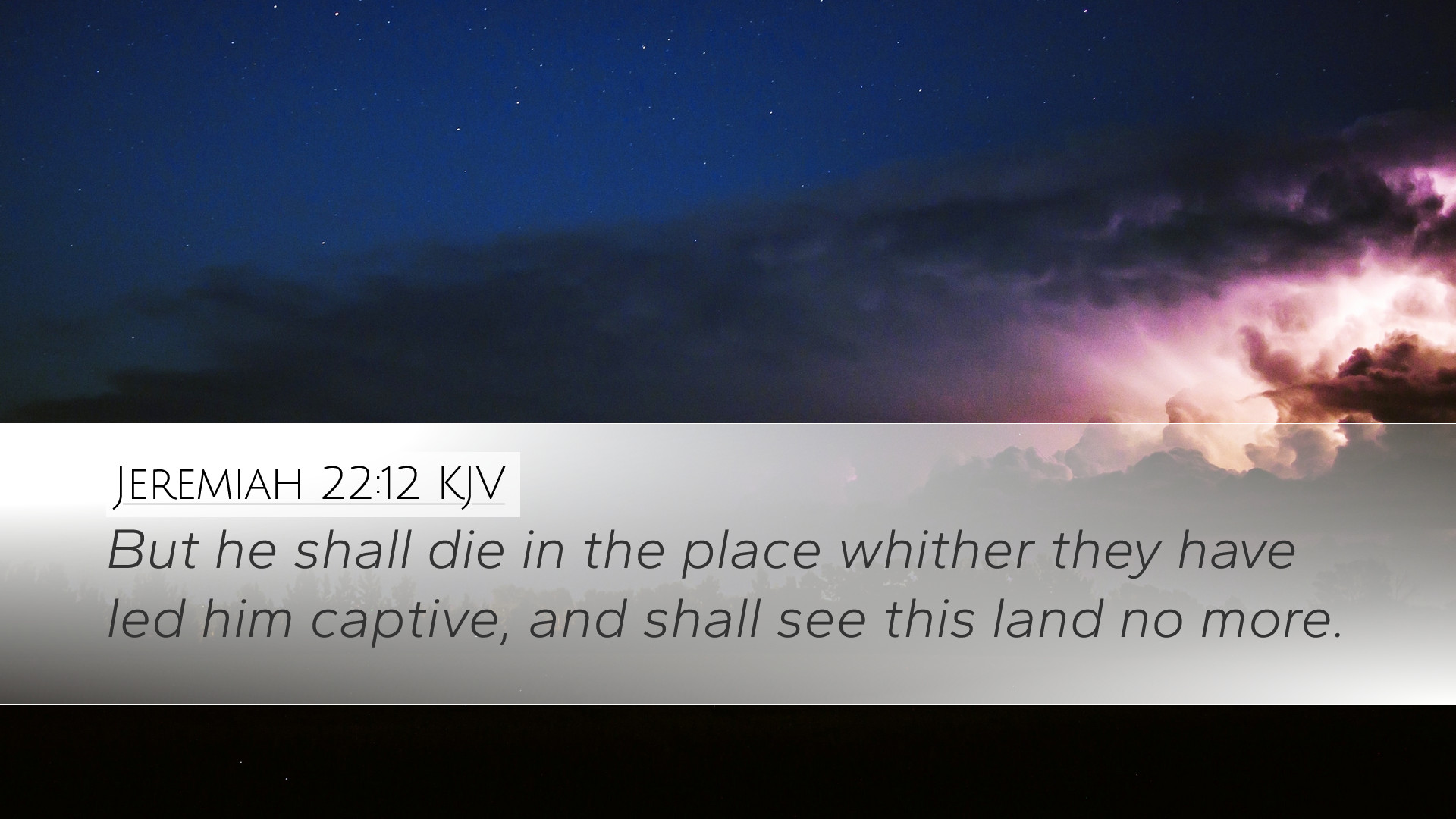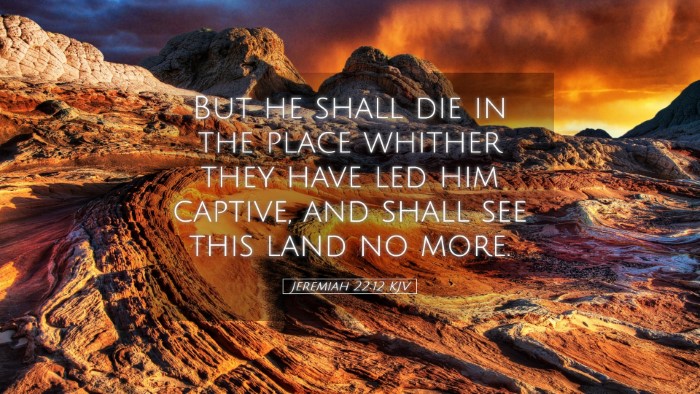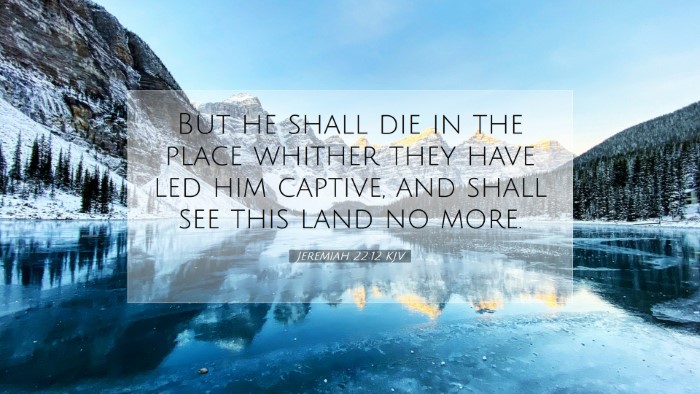Commentary on Jeremiah 22:12
Verse Reference: Jeremiah 22:12 - "But he shall die in the place whither they have led him captive, and shall see this land no more."
Introduction
This verse is part of a passage in the book of Jeremiah that deals with the judgment of God upon kings and the people of Judah. This specific verse refers to the fate of Jehoiachin, who was taken captive to Babylon. In the context of Biblical prophecy, the statement reveals profound theological implications regarding God's sovereignty and the consequences of disobedience.
Insights from Matthew Henry
Matthew Henry emphasizes the historical and moral lessons to be derived from this prophecy. He notes that Jehoiachin’s captivity serves as a reminder of the serious penalties for rebellion against God’s commandments. Henry explains:
- Divine Judgment: The king's demise in Babylon illustrates the certainty of divine judgment upon those who forsake the Lord.
- Loss and Regret: The phrase "shall see this land no more" highlights the tragedy of lost opportunities and the deep sorrow of exile.
Henry further elaborates on the consequences of disobedience, suggesting that God's judgment is ultimately directed toward the reclamation of His people rather than purely punitive intentions.
Insights from Albert Barnes
Albert Barnes offers a detailed historical perspective on this verse. He points out that Jeremiah speaks to the immediate context of Jehoiachin's fate, which serves as a prophetic warning to the people of Judah. Barnes notes:
- Context of Captivity: Jehoiachin’s capture and subsequent death in exile underscore the severity of Judah’s sin, as this wasn’t just a political failure, but a spiritual one.
- Symbolism of Land: The land of Judah represents God's promise; thus, being exiled signifies a break in the covenant relationship.
Barnes also connects this event to the overarching themes of hope and restoration in Jeremiah, emphasizing that while God punishes, He concurrently signals a future restoration for His people.
Insights from Adam Clarke
Adam Clarke provides a theological reflection on the eternal implications of this verse. He interprets the text not only historically but also prophetically. Clarke suggests:
- Warning to Leaders: The fate of Jehoiachin serves as a warning for leaders in every generation about the consequences of leading the people away from God.
- God’s Sovereignty: Clarke points to the sovereignty of God in orchestrating events in history, positioning the capture of Jehoiachin as part of His divine plan for Israel.
Moreover, Clarke reflects on how this verse speaks to the essence of hope amid despair, reminding readers that God’s plans transcend human understanding and historical circumstances.
Theological Reflections
Building on insights from these commentaries, several theological reflections emerge:
- Consequences of Sin: The narrative surrounding Jehoiachin illustrates the broader biblical theme that disobedience leads to loss—both personally and communally.
- Hope in Exile: The exile presents a temporary break but also reflects hope for eventual restoration; this theme resonates throughout the prophetic literature.
- Covenant Faithfulness: God’s actions in judgment are always linked to His covenant promises, underscoring the depth of His love even in discipline.
Conclusion
Jeremiah 22:12 serves as a poignant reminder of the seriousness of forsaking God's ways. Through the prophetic voice of Jeremiah, we learn about the inevitable consequences of sin while simultaneously being assured of God’s unending desire for restoration. This verse challenges us to examine our lives and leadership, fostering a heart inclined towards obedience and reverence for God’s sovereignty.


